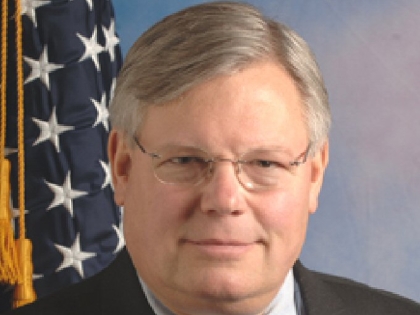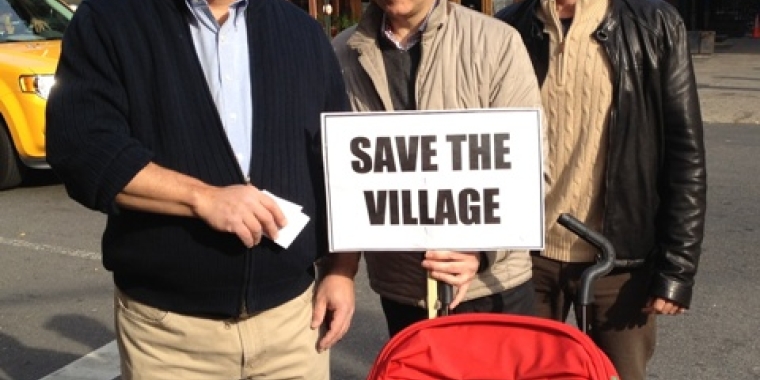
Testimony Of New York State Senator Thomas K. Duane Before The Partnership For Universal Health Coverage Joint Public Hearing Of The New York State Departments Of Health And Insurance
My name is Thomas K. Duane and I represent New York State's 29th Senate District, which includes the Upper West Side, Hell's Kitchen, Chelsea, Greenwich Village, and part of the East Side, including the East Village, Stuyvesant Town, Peter Cooper Village and Waterside Plaza. I want to thank you for the opportunity to testify before this joint hearing. I applaud Governor Spitzer for his initiative to bring accessible, affordable, high quality healthcare to all New Yorkers, and his recognition of the great returns that will be brought by a substantial investment in universal healthcare coverage.
The current state of healthcare coverage, plagued by spiraling insurance premiums and health care costs, is placing an unsustainable burden on individuals, businesses and the state, and is leading to a growing number of uninsured and underinsured New Yorkers. I share the Governor's belief that state-sponsored, universal healthcare coverage will promote a consistent quality of care for all New Yorkers and dramatically reduce New York's health care costs through operating efficiencies, increased purchasing power, and the advancement of primary care and early intervention. Furthermore, reducing or eliminating exorbitant employer-sponsored insurance premiums will be a boon to New York's economic development. Even though taxes would likely increase to support the system, they would inevitably be lower and more stable than today's insurance premiums. Moreover, the corporate burden would be more equitably spread based upon revenues so that small businesses and start-ups, in particular, would not be stifled by out-of-control health care costs.
It is truly remarkable that consensus to move towards universal healthcare coverage in New York State is now so broad that the question is not whether to do so, but how. This past January, I attended a health policy roundtable at the Weill Medical College of Cornell University in search of solutions for covering the uninsured in New York State. The day-long event began with an overview of "A Blueprint for Universal Health Insurance Coverage in New York State," a report developed by the United Hospital Fund and the Commonwealth Fund, which, among other things, laid out eight reform principles that should "guide the design and assessment of potential policy options for expanding health insurance coverage in New York."
The following are the "Principles for Reform" as expressed in the United Hospital Fund and Commonwealth Fund report:
* Affordability. Increase affordability of health insurance premiums while maintaining comprehensive benefits, so that low-income individuals and working families are able to obtain coverage that provides access to care with financial protection.
* Administrative simplicity. Reduce administrative complexity to make it simpler to obtain and retain public and private health insurance coverage.
* Stability of coverage. Reduce churning in public health insurance programs and increase overall stability of coverage.
* Shared responsibility. Share responsibility for the cost of coverage among individuals, employers, and federal and state governments.
* Continuity with existing programs. Build on existing programs in New York.
* Choice. Provide several coverage options.
* Pool risk. Reduce non-group and small-group purchase of coverage in favor of pooled options to spread risk and increase bargaining clout through a large risk pool.
* Efficiency and quality. Provide a foundation for increasing efficiency and quality of New York State's entire health care system to benefit all New Yorkers, insured and previously uninsured. Covering the uninsured is a critical step towards accomplishing these goals.
While this list is not exhaustive, I believe these recommendations are sound and should underlie any framework for health system reform and, ultimately, universal healthcare coverage.
I wish to call special attention to the point about continuity with existing programs, because New York is in an especially strong position in this regard. Our current publicly funded insurance programs, Family Health Plus and Child Health Plus, give us much to build upon, as do our Elderly Pharmaceutical Insurance Coverage program (EPIC), our AIDS Drug Assistance Program (ADAP) and Special Needs Plans (SNPs), among others.
The Weill Medical College symposium I attended also addressed models of universal healthcare coverage being implemented throughout the county, and explored what lessons we can learn from them. While approaches being taken to expand health insurance coverage in Maine, Massachusetts, Vermont, California, Iowa, and Minnesota have much to recommend, we must realize that there are aspects of those plans that are inappropriate or simply would not work in New York State. Under any circumstances, there should be no sanctions against consumers who do not participate, and there should be absolute parity for mental health services, including the full range of addiction treatment. I urge the Departments of Health and Insurance to carefully study the lessons from these plans -- as well as emerging programs like the experiment recently launched by the City of San Francisco to offer health care services to all of its uninsured residents -- in order to find the best solution for New York State.
Thank you for your consideration of my comments. I look forward to continuing to work with the Spitzer administration towards our shared goal of ensuring accessible, affordable, high quality healthcare for all New Yorkers.
